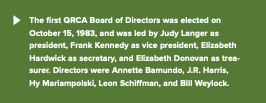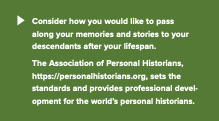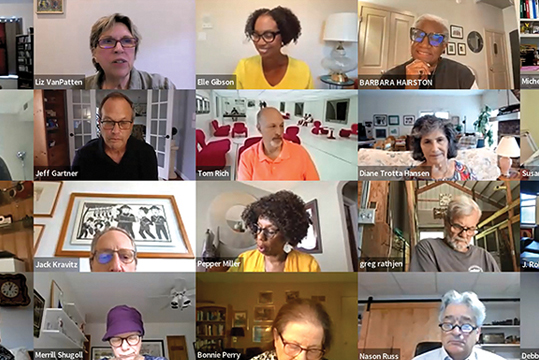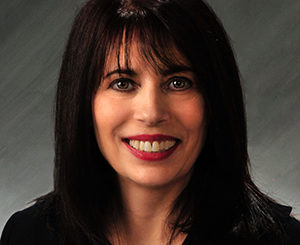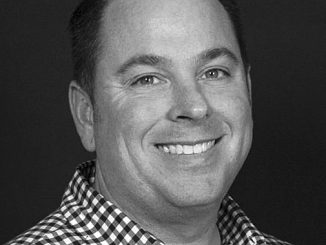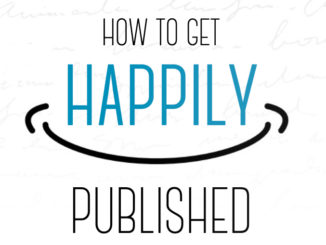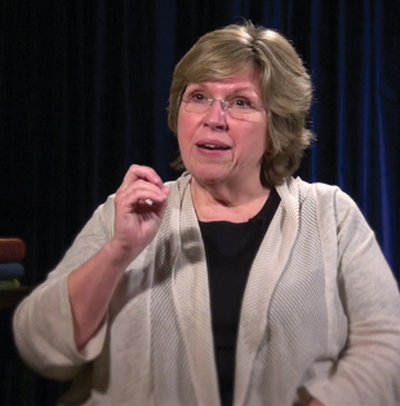
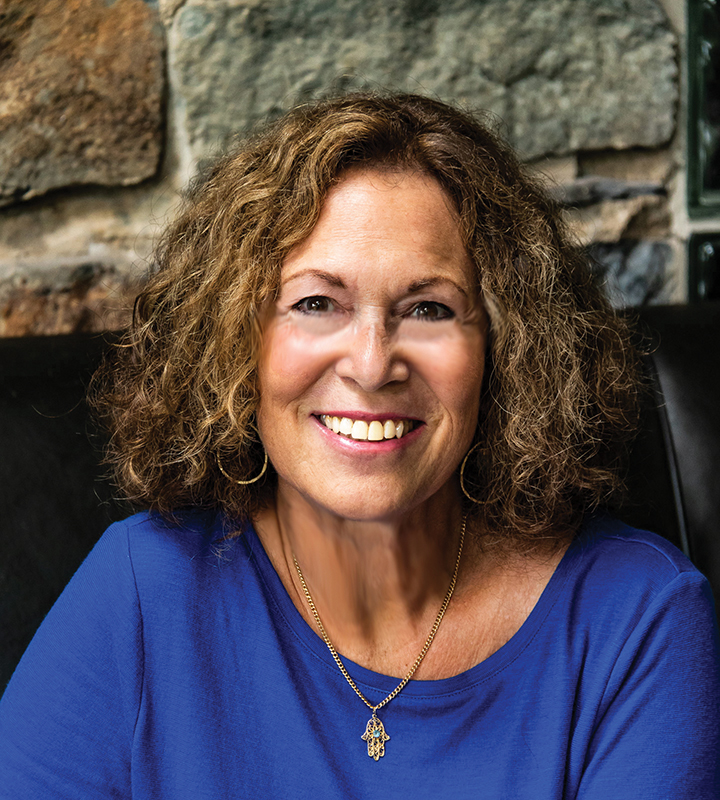
By Liz Van Patten, Retired, Venice, Florida, vanpatten.liz@gmail.com
By Laurie Tema-Lyn, Practical Imagination Enterprises, Monroe Township, New Jersey
With great sadness, we report that Laurie passed away on December 23, 2023. This was written prior to her passing. Read Laurie’s memoriam elsewhere in this issue.
Spurred by member comments during previous meetings, the QRCA Emeritus Special Interest Group tackled the topic of “Legacy” at its September 2023 meeting. Featured panelists included QRCA members Jeff Gartner, Elveniya Gibson, Barbara Hairston, Tom Rich, and Laurie Tema-Lyn, along with moderator Liz Van Patten and a special appearance by Personal Historian Ron O’Reilly.
Legacy, attendees learned, is a complex construct, passed down from our family and community histories and extending our personal influence—for good or not-so-good—far beyond our individual lives.
“Legacy is your positioning—what is the first thing people
say about you when you are no longer around?”
—QRCA Member Nason Russ
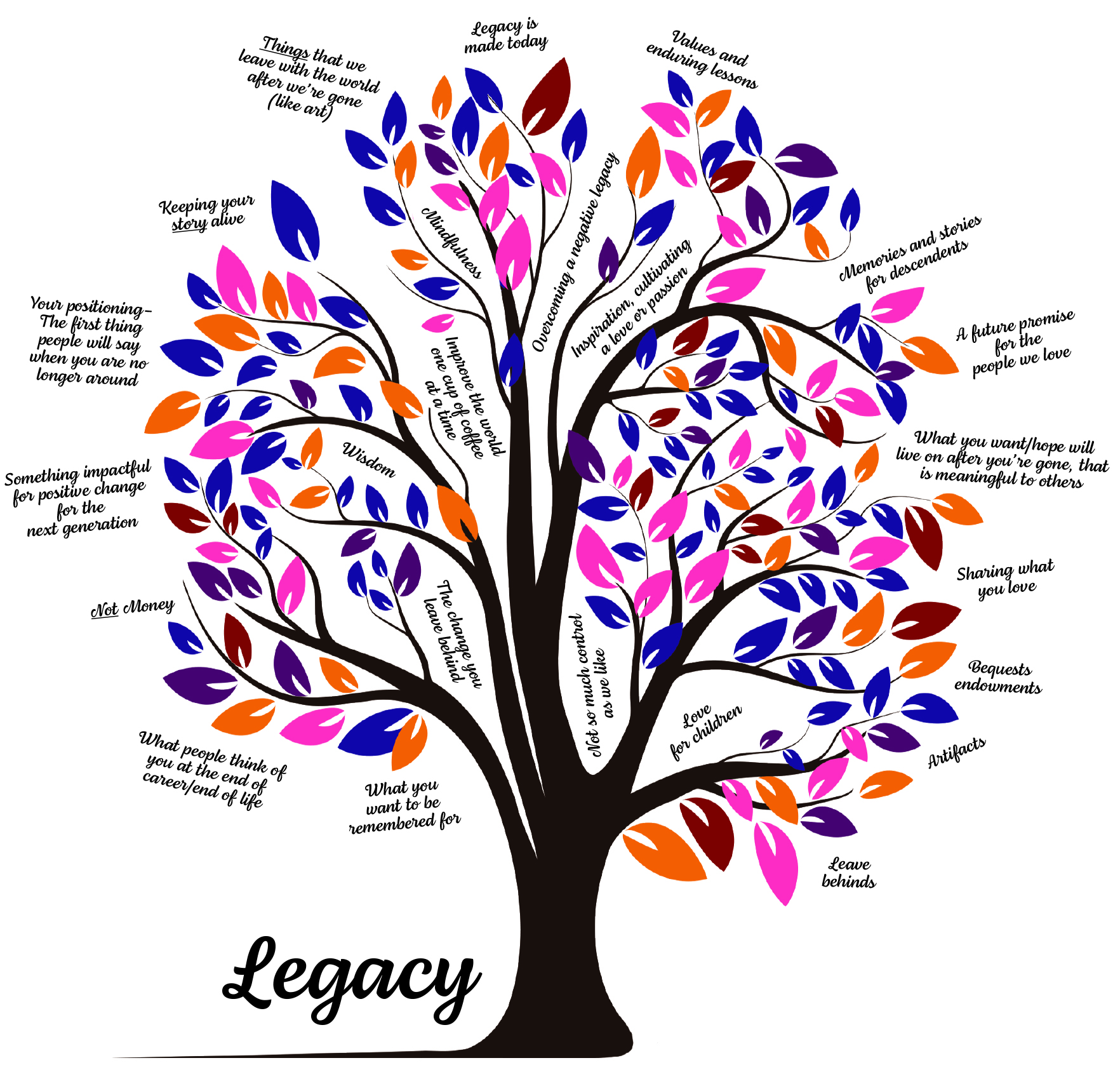
Hearing the Stories, Meeting the Person
Laurie Tema-Lyn introduced Personal Historian Ron O’Reilly via video clips of her interview with him. O’Reilly has had multiple careers, including clinician, storyteller, and educator. As a personal historian, he became a collector of family stories, enlisted by children or grandchildren to capture the life stories of their parents or grandparents, with the objective of sharing the stories and insights with family members and colleagues.
Asked for his observations on how people benefitted from these stories, O’Reilly explained that hearing the narrator’s words immerses listeners in a deep and meaningful way, receiving the legacy of wisdom in their elder’s own voice—and the storytellers gain a new appreciation of their own accomplishments.
“It goes from hearing Grandpa’s stories to meeting Grandpa again. Listeners are engaged in the person, and when that happens, there is a new sense of appreciation of life and the different stages of life and the priorities of those stages.”
“When it works well, the narrator is viewed as being a hero of their story, what they had to call upon to survive… the listeners down the road are meeting not just stories, but meeting the person who lived the story, and that provides a wider appreciation of what life is about.”
Laurie described her authorship of books, numerous articles, and establishing the Luminaries column for QRCA VIEWS as contributions to her own legacy. Wanting to impart her experiences and stir up some passion for creativity and experimentation in different veins, she distinctly recalled the catalyst for her book Stir It Up!
“It was just before my 60th birthday, and I realized it was time to collect and put on paper my business stories and activities, hopefully to provide something of value for research colleagues.”
Zest! Food That’s Fun to Make & Good for You was published in 2023 with friends and family at the center of the plate. It’s a love letter and a statement of her values.
Breaking the Mold
In addition to her career in qualitative research, Elveniya Gibson volunteers and travels worldwide, helping women in developing areas achieve economic stability. For Gibson, legacy is the people and events who have impacted her. Growing up in Washington, DC, during the civil rights era, activists who were changing the status quo inspired her, including her mother—one of the first Black women hired to work in the federal government. But Gibson wanted a different life from her parents. A self-described “purple cow,” her motto is “Honor your difference. Believe in yourself and never give up.” The mother of two grown sons, she’s teaching them to find what makes them happy and encouraging them to forge their own paths.
“Believe in yourself and just keep going. Who you become is most important. I walk that talk; I want that to be my legacy.”
Bridging Generations
For Thought Leader Tom Rich, legacy provides a connection between our past and our present. Rich finds inspiration in the fact that both his parents came from humble beginnings but achieved professional degrees and successful careers, sharing their knowledge by mentoring others through their work.
“We really do exist between two legacies. A legacy isn’t just something we create that goes on after us, but it is also something that is given by those who came before us.”
Looking to the future, Rich believes that the interactions we have with others will form our true legacy, adding that the pursuit of things we love may be the key to creating a meaningful legacy.
“I ask myself, ‘Did I inspire somebody? Did I teach somebody to love something as much as I do?’ If you can teach somebody to love something, that’s going to last… then maybe a little bit of you will become part of their legacy.”
Recognizing the Legacy of Other Cultures
Throughout his career in marketing, Jeff Gartner has always viewed family as his top priority. A father of three and grandfather of five, Gartner was an unusually active participant in his children’s early education and volunteer sports coach for both younger generations. His client roster includes numerous community and not-for-profit organizations, and he shared a memorable project that gave him a unique appreciation of Indigenous cultural legacy.
When the city of Grand Rapids, Michigan, planned to build a new park on a site including 2,000-year-old Indigenous burial mounds, the Public Museum of Grand Rapids commissioned Gartner to conduct a study with University of Michigan archeologists, K–12 educators, and Indigenous people. While the park project did proceed, the sacred burial mounds were preserved. But the interviews also revealed that tribal elders were very concerned that their Anishinaabe language and oral history were disappearing. The museum responded and secured a grant to help preserve this important legacy through video interviews. Learn more about how the Public Museum of Grand Rapids is preserving the legacy of the Anishinaabe here: https://youtu.be/pG2xWdr6Jm8.
“It feels really good… when you do something for a nonprofit and help them accomplish something meaningful.”
Considering Legacy without Children
Attendees were highly engaged and responded to the panelists with lively comments, diving into the question of whether there were differences in thinking about and creating legacy among individuals with children versus those without. Members without children mentioned their focus on people in their intimate social circles: nieces and nephews, children of dear friends, and even professional associates for whom they want to pass down wisdom, values, and passions. There was also strong interest in providing financial support for an alma mater, a personally meaningful cause, and organizations such as QRCA.
“For those of us without kids, there are still very strong parallels as we think about legacy. It’s always about values and enduring lessons and passing along wisdom and inspiration, but maybe we who are childless find ourselves forced to paint on an even wider canvas.”
—QRCA Member Paul Tuchman
“I don’t use this word frequently, but it’s those of you with kids who are blessed.”
—QRCA Member Jeff Walkowski
“Among the organizations named in my will are QRCA and the Center for Learning & Living, the nonprofit school I’m involved in because I feel a bequest can help them continue.”
—Judy Langer, Cofounder of QRCA and Executive Director of The Center for Learning & Living
Shaping Your Own Legacy
Barbara Hairston said that thinking about legacy is an exercise in mindfulness that requires staying in the present.
“You can think about the future, but that’s not what impacts the future; it is what you do today and how you live your life. What you achieve and how you achieve it. This is where your legacy is made.”
Hairston stressed the importance of being true to oneself and establishing legacy goals. Ultimately, she observed, we have little control over the long-term impact of our lives, but we can begin by focusing on values that are most relevant to us personally and touching other lives in meaningful ways.
“There is a story about an old man who notices a boy on the beach throwing something into the ocean. He asks the boy, ‘What are you doing?’ And the boy responds, ‘I’m throwing these starfish back into the ocean.’ And the old man says, ‘Well, there are tens of thousands of starfish on the beach. You can’t make much of a difference.’ And the little boy bends down and throws in another one, saying, ‘It made a big difference to that one.’ And for me, that is the metaphor for legacy. Just make a difference for that one. Just touch that one person.
Embracing the New
As founder of QRCA Qcasts, Liz Van Patten recalls her challenges and excitement at creating the series of one-hour webinars on qualitative research topics featuring QRCA members. The term “webinar” did not exist, and online meeting platforms could be unreliable, but QRCA Qcasts launched in April 2005 and are still going strong—a lasting legacy within the qualitative research industry.
“Qcasts gave me the opportunity to combine my talents as a researcher, a presentation coach, and a producer, utilizing new technology to highlight my QRCA colleagues and their exceptional skills.”
Planning Your Legacy Now
The presentations and participants’ conversations were rich with action ideas as we all seek to secure a measure of control over the legacy we leave.
Here are a few:
- Recognizing that legacy is an ongoing process, be mindful of your present actions. In business, with family and friends, consider how your actions might lead to a positive or not-so-positive impact on the future. What would you like to create now that will be meaningful to others in the future?
- If leaving a financial legacy is a key goal, start planning now to identify which people or organizations you feel deeply about that you would like to help financially. Prepare now for the best method in which to gift, donate, or endow.
- Consider how you would like to pass along your memories and stories to your descendants after your lifespan. The Association of Personal Historians, https://personalhistorians.org, sets the standards and provides professional development for the world’s personal historians. They can help you find a personal historian or memoirist to capture your life story, as well as provide resources to help you do this on your own.
- While legacy can be on a grand scale, there are ways to create legacy on a smaller, more personal scale. Find delight in creating legacy one conversation at a time with casual contacts, as well as colleagues and friends. Sharing a few minutes of human conversation can create a ripple effect of positive energy.
“How are we leaving those lessons to those in our wider circle? A new PhD recently contacted me and asked to meet up after the commencement ceremony. During our meeting, she told me our coffee together on a previous visit was a game-changer. She said she realized how she needed to redirect and reprioritize, and claimed I helped her change her life. Frankly, I had no idea and barely remembered our meet-up. So, I hope to improve our world in this fashion, one cup of coffee at a time!”
—QRCA Member Susan Saurage-Altenloh
“I used to think about making an impact on the wider world, and now I mostly think about how people I know will remember me. My mother wrote this extract of a bigger poem in my autograph book as a girl, and it has been a huge legacy for how I live . . . or try to live.”
—QRCA Member Susan Abbott
Learn to make the most of life, Lose no happy day, Time will never bring thee back Chances swept away! Leave no tender word unsaid, Love while love shall last; The mill cannot grind With the water that is past.
—from The Water Mill, by Sarah Doudney
